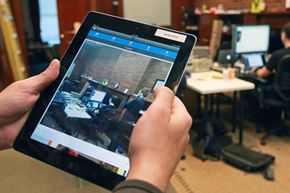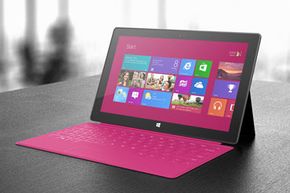In the computer market, tablets are tearing it up. Whether it's an iPad or one of Apple's many competitors, consumers can't get enough of these slim, touchscreen machines. By 2016, more than a third of Americans will own a tablet [Source:Jones]. Sales of tablets will blast from 56 million in 2011 to 375 million in 2016 [Source:Gillett]. That's a whole galaxy of tablets. So it seems fair to ask – are tablets changing the way computers work?
After all, tablets are a lot different than the computers we were accustomed to before the iPad came along. Pre-iPad, we mostly used keyboards as our primary input devices. Tablets (and their smaller smartphone cousins) have acclimated us to the idea of everyday touchscreen interaction.
Advertisement
Size is another consideration.Tabletsare smaller than even the most compact laptop. Yet they're loaded with strong-armed processors that muscle their way through Web browsing, games and other graphics-heavy apps with ease.
As a result, the way we interact with our technology has shifted. It used to be that business professionals whipped out their laptops at meetings. Nowadays, it's anything but uncommon to find everyone from bankers to artists deploying tablets for serious business.
In spite of all of that, we'll put one myth to rest right away -- tablets aren't replacing traditional computers. They will definitely take a bite out of laptop sales, but they may actually boost desktop numbers [Source:Gillett]. That's because although people love tablets for lightweight, portable data consumption, when it comes to hardcore content creation, such as for video editing or multimedia presentations, you still need high-horsepower CPUs, big monitors and a complete array of input tools. So as of 2012, researchers estimated that there will be around 2 billion PCs in use in 2016 [Source:Gillett].
是的,你已经知道的电脑控制器inue to survive. To really thrive, though, old-school computers will have to learn some new tablet-influenced tricks.
Keep reading and we'll explore the ways tablets are taking on traditional computers, and how they're warping the way we interact with digital devices of every kind.
Advertisement





